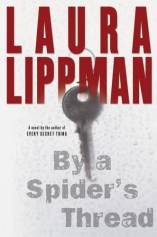



February 2024
Hello, Columbus
 "Swenson waits for his students to complete their private rituals, adjusting zippers and caps, arranging the pens and notebooks so painstakingly chosen to express their tender young selves, the fidgety ballets that signal their weekly submission and reaffirm the social compact to be stuck in this room for an hour without real food or TV. He glances around the seminar table, counts nine; good, everyone's here, then riffles through the manuscript they're scheduled to discuss, pauses and says, 'Is it just my imagination, or have we been seeing an awful lot of stories about humans having sex with animals?'"By the time you read this, I will have led my English 306 class at Goucher College in a discussion of two works by Philip Roth -- "Goodbye, Columbus" and "The Conversion of the Jews." I chose this novella and short story for several reasons. First and foremost, I love them. At least, I love GC; now that I've re-read "The Conversion of the Jews" I can't help wishing I had chosen "You Can't Tell a Man by the Song He Sings," whose dutiful good boy resonates more strongly with me than the theologically open-minded Ozzie.
"Swenson waits for his students to complete their private rituals, adjusting zippers and caps, arranging the pens and notebooks so painstakingly chosen to express their tender young selves, the fidgety ballets that signal their weekly submission and reaffirm the social compact to be stuck in this room for an hour without real food or TV. He glances around the seminar table, counts nine; good, everyone's here, then riffles through the manuscript they're scheduled to discuss, pauses and says, 'Is it just my imagination, or have we been seeing an awful lot of stories about humans having sex with animals?'"By the time you read this, I will have led my English 306 class at Goucher College in a discussion of two works by Philip Roth -- "Goodbye, Columbus" and "The Conversion of the Jews." I chose this novella and short story for several reasons. First and foremost, I love them. At least, I love GC; now that I've re-read "The Conversion of the Jews" I can't help wishing I had chosen "You Can't Tell a Man by the Song He Sings," whose dutiful good boy resonates more strongly with me than the theologically open-minded Ozzie.
Blue Angel, Francine Prose © 2024
Secondly, these are young stories -- stories about young people written by a young, largely sheltered man. (Roth was 26 when the collection was published; his only life experience at that point was college and a stateside stint in the Army.) I try to choose fiction that's not too far from my students' lives, to show them what others have done despite their seemingly bland biographies. To quote Eudora Welty in One Writer's Beginnings: "As you see, I am a writer who came of a sheltered life. A sheltered life can be a daring life as well. For all serious daring starts from within." It's not that I want to ban stories about sex with animals, mind you. I'm officially unshockable at this point. I just hate to see students trying too hard to be interesting.
Finally, I hoped it would be inspiring for students to read the first works of a writer who is still with us -- and still writing superbly. True, The Plot Against America was not without flaws, but the last decade of Roth's writing life has been one of his richest.
As I settled in to read GC for what must be the 20th or so time, I realized I was teaching a piece of historical fiction. GC is almost as remote to my students' lives as D.H. Lawrence's Sons and Lovers was to my college-age self. English 306 is a writing class, so I'm not expected to deliver full-bore lectures -- the pun is intended -- but to use the stories as springboards for discussions on writing. Yet some context seems essential.
Will my students understand, for example, that this is the pre-Civil Rights era and that Neil Klugman is meant to be the enlightened liberal in the story? Or will Roth's/Neil's use of words such as "Negro" and "colored" throw them off? What should we make of the ghetto argot of the boy who visits the library to study the work of Gauguin -- or the fact that he calls the artist "Go-again"? Personally, I'm flummoxed by the boy's comment: "Is he a white man or a colored man? ... I knew that. He don't take pictures like no colored men would. He's a good picture taker." WTF, Mr. Roth?
Do they have any knowledge of the Jewish experience in the first half of the 20th century? Can they begin to understand how rare sex was in literary novels of that time? And, in fact, it's not really described in GC; the couple's first time is rendered in less than a single sentence: "[A]nd there we were, Brenda falling, slowly but with a smile, and me rising." Just a few years later, in My Life as a Man, Roth will describe similar trysts in a suburban rumpus room in far more detail, down to the props.
In GC, Roth writes more about contraception than he does about sex itself. "I know. I read Mary McCarthy," Neil tells Brenda when he's urging her to be fitted for a diaphragm at the Margaret Sanger clinic, and I wonder if that reference will be as mysterious to my students as, well, the Russell Wright cocktail shaker in McCarthy's The Group was to me, which I first read in my teens or twenties. Yes, I know who Russell Wright is now, and I get the shaker's relevance, along with all the other products, trends and material goods mentioned in The Group. But at the time, I just bleeped right past things I didn't understand, to borrow Linus Van Pelt's approach to pronouncing the surnames in The Brothers Karamazov.
That's because I read The Group for the same reason that I read Lolita -- and Peyton Place and The Other Side of Midnight and Greengage Summer and The Godfather and Fear of Flying and perhaps evenGoodbye, Columbus. I read these books, and many others, because I heard they were dirty. Is it even possible for a book to seem illicit now? The idea seems quaint. Perhaps my students can enlighten me. I told them on the first day that I can only hope they get as much out of the class as I do; I'm not sure they realized I wasn't kidding.
News and Notes
I've just learned that "The Shoeshine Man's Regrets," a Tess Monaghan short story in Robert J. Randisi' "Murder and All That Jazz" anthology will be included in Houghton Mifflin's Best American Mystery Stories of 2024, edited by Joyce Carol Oates and Otto Penzler.
I have a short story in the new anthology Dangerous Women and it's been singled out here and there, which is heady stuff when one is keeping company with Joyce Carol Oates, Michael Connelly, Ed McBain, S.J. Rozan, Walter Mosley and many other fine writers.
Meanwhile, By a Spider's Thread has been nominated for a Gumshoe Award for Best Mystery of 2024. The other nominees are: T. Jefferson Parker, California Girl; Jim Fusilli, Hard, Hard City; Denise Hamilton, Last Lullaby; and S.J. Rozan, Absent Friends. Very good company; I'll lose happily to any one of them.
Unlike the groundhog, I will not emerge in February, but I'll pop up in March at the Virginia Festival for the Book and the Tennessee Williams Literary Festival in New Orleans. Nice work if you can get it, as Gershwin said. Remind me of that if you ever hear me cursing any aspect of a writer's life.
